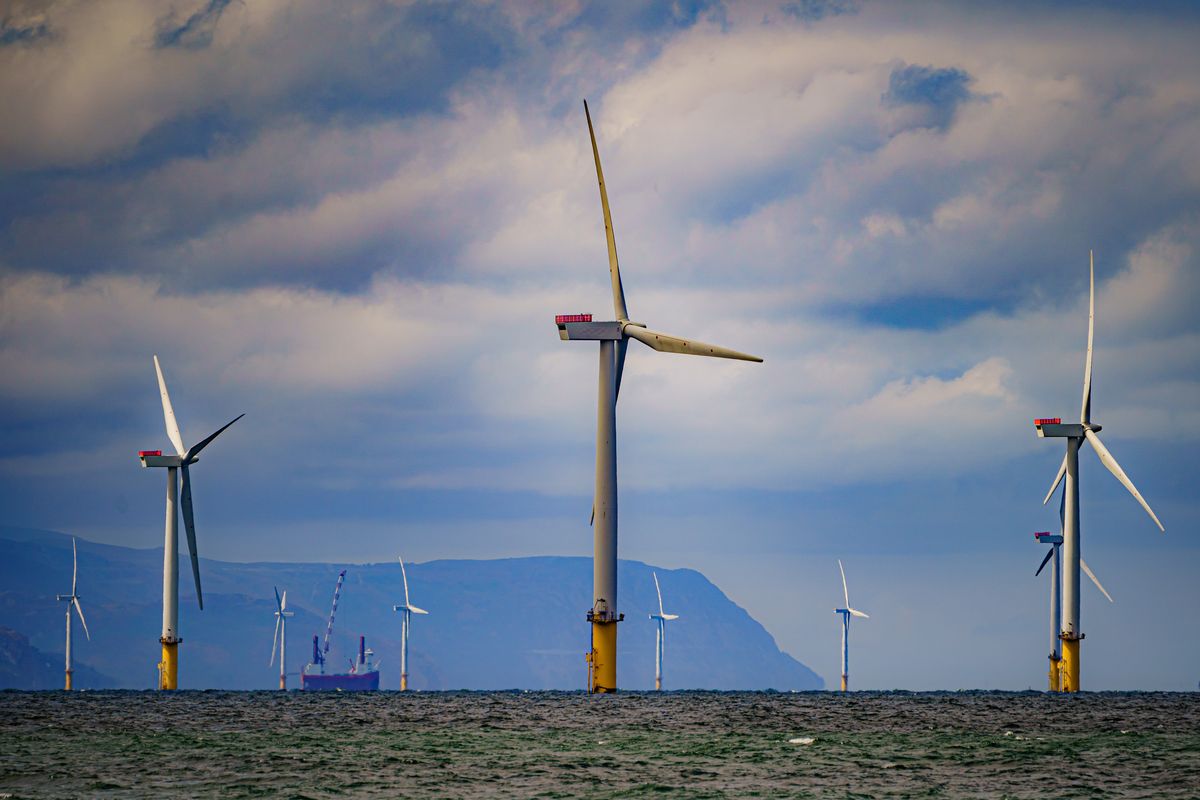King Charles’s Crown Estate threatened with lawsuit from Greenpeace as organisation blasts ‘outrageous’ practices

The Crown Estate manages properety that is not privatley owned by the monarch or by the government
Don't Miss
Most Read
Latest
King Charles's Crown Estate could be facing legal action from the activist group Greenpeace after they accused the corporation of mismanaging its control over England’s seabed.
The environmentalist organisation has accused the monarch’s public property management company of exploiting high demand for offshore wind power.
The Crown Estate controls property which is neither privately owned by the sovereign nor by the Government, worth £15billion, including the seabed around England, Wales and Northern Ireland.
As such, the corporation maintains a control over development of wind farms around the nation’s coastline.
TRENDING
Stories
Videos
Your Say
Greenpeace argued that the Crown Estate is effectively rationing access to the seabed for such developments in order to maintain high profits.
They suggest this is having an adverse effect on the rollout of wind power in the UK.
To that end, the environmentalist lobby group claimed that the Crown Estate has a legal obligation to not misuse their control of the seabed, which it has now breached.
Greenpeace has called on changes to be made before they “let a court decide whether or not what’s happening is lawful”.

King Charles’s Crown Estate has been threatened with legal action from Greenpeace
|GETTY
Co-executive director at Greenpeace UK, Will McCallum, said the royal corporation should: “Manage the seabed in the interest of the nation and the common good, not as an asset to be milked for profit and outrageous bonuses.”
“We should leave no stone unturned in looking for solutions to lower energy bills that are causing misery to millions of households,” he added.
Citing the Labour Government’s green commitments, Mr McCallum called on Chancellor Rachel Reeves to step in.
“Given how crucial affordable bills and clean energy are to the government’s agenda, the chancellor should use her powers of direction to ask for an independent review of how these auctions are run,” he said.
LATEST ROYAL NEWS

The complaint concerns the Crown Estate's handling of its control over the nation's seabed and the development of offshore wind farms
|PA
The Greenpeace official then suggested the lobbying group may pursue legal action if their concerns about the Crown Estate and wind power are not assuaged.
“If the problem isn’t fixed before the next round, we may need to let a court decide whether or not what’s happening is lawful,” Mr McCallum added.
For their part, the Crown Estate has said Greenpeace had “misunderstood” what legal duties the corporation had and how offshore development was handled.
“Greenpeace has misunderstood the crown estate’s legal duties and leasing processes. Option fees are not fixed by the crown estate,” a spokesman said.

Greenpeace's Will McCallum suggsted the organisation they may 'let a court decide whether or not what’s happening is lawful'
|GETTY
The Crown Estate stressed that the price of seabed rights is “set by the developers through open, competitive auctions and reflect market appetite at the time”.
“As our net revenue is returned to the Treasury, option fees help to ensure that taxpayers benefit from the requisite value from the development of our scarce and precious seabed resource.
“The crown estate is accelerating offshore wind in line with government policy to move forward the energy transition at pace and improve energy security,” the spokesman added.
GB News has approached both the Crown Estate and Greenpeace for comment.

A spokesman for the Crown Estate has said Greenpeace 'misunderstood' the the situation regarding offshore wind farms
|GETTY
The Crown Estate made a profit of £1.1billion across the previous financial year, doubling its take from two years previous.
Twelve per cent of these profits flow to the Royal Family to help fund its work, which was cut from 25 per cent in 2023 in response to the funds generated by the offshore boom.
In their 2024 report, the Crown Estate celebrated the success of offshore wind in the UK – where an equivalent 52 per cent of annual British energy needs were fulfilled by wind power.
They also published their Industrial Growth Plan, which sets out the ambition to triple offshore wind manufacturing capacity over the next ten years – creating 10,000 jobs a year and boosting the UK economy by £25billion.









